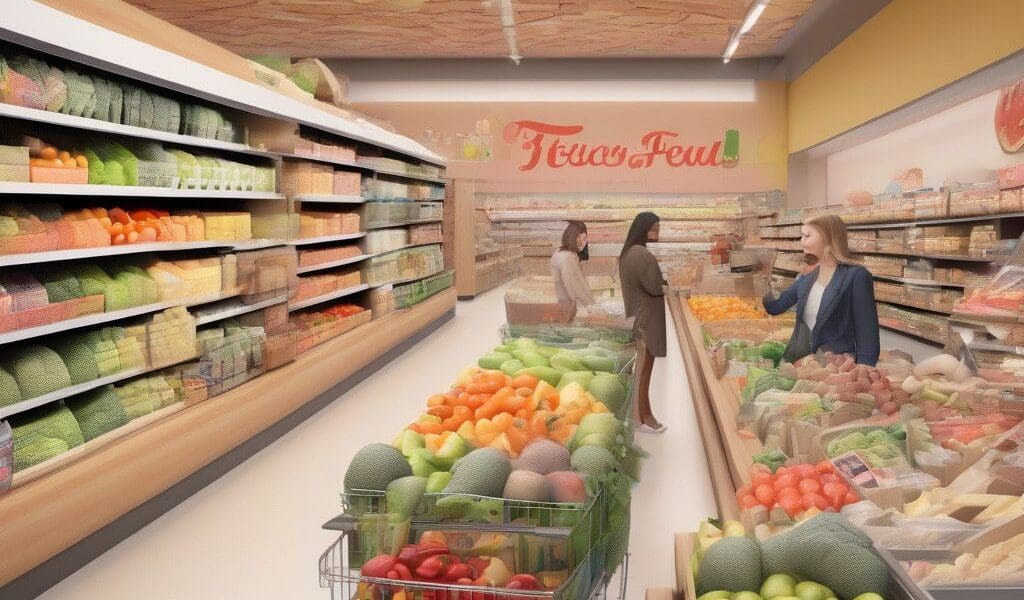In the competitive landscape of grocery retail, understanding consumer preferences is crucial for success. A recent report by Deloitte reveals a marked shift in grocery shopping habits, highlighting the importance of convenience alongside the demand for fresh food. As 52% of consumers now value convenience more than ever and 84% of grocers believe it is essential for boosting sales, the grocery industry faces significant pressure to adapt.
The Deloitte report titled “A Fresh (Food) Take on Grocery Convenience” indicates that many consumers find meal preparation increasingly daunting, with over half of those surveyed (53%) indicating that deciding “what’s for dinner” is a major challenge. This frustration presents a prime opportunity for grocery stores to position themselves as problem solvers by offering tailored solutions such as meal planning assistance. Indeed, 44% of respondents expressed a willingness to shop at stores that help with meal planning.
Moreover, grocery stores are not just in competition with each other; they face formidable challenges from online grocery services, third-party shopping apps, and even non-traditional competitors like restaurants and dollar stores. A notable 56% of grocers are concerned about online grocery operations, yet the real threat may lie in the underestimated competition from these alternative food sources.
Despite the competition, the appeal of fresh food remains a strong drawing card. A significant 90% of consumers reported that fresh food contributes positively to their happiness, and two-thirds (66%) stated they would pay more for fresh produce compared to canned or frozen alternatives, with an average price increase of 22%. Notably, 82% of shoppers indicated that convenience plays a crucial role in their fresh food choices—especially during busy weeks, where convenience overtakes health considerations, leading to a preference for quick options.
Millennials and Gen Z shoppers are particularly influenced by the convenience factor, with 57% of Millennials and 61% of Gen Z respondents acknowledging that convenience is more important than before. In response to these changing consumer priorities, 85% of grocers are investing significantly in initiatives to enhance convenience across their operations. These investments range from improved checkout processes to optimized store layouts.
Another innovation on the horizon is the adoption of generative AI, with a remarkable 80% of grocery executives expressing optimism about its potential impact. They envision using generative AI not just for operational efficiency but also as a tool to assist consumers in planning their meals and creating shopping lists, addressing a prevalent pain point for many shoppers.
Deloitte’s research highlights that consumers prefer shopping at local grocers, with 47% indicating they would continue to patronize neighborhood stores if they offered convenience without losing the freshness appeal. Restaurants account for 25% of consumer preferences in meal sourcing, further emphasizing the shift towards convenience and dining experiences.
Amid these insights, grocers must strategically enhance the point of sale to improve customer-perceived convenience. According to the study, top priorities for shoppers include quicker checkouts (73%), more streamlined store layouts (59%), and simpler return processes (51%). These improvements at the physical touchpoints can signify a commitment to customer satisfaction, ultimately driving greater loyalty.
The ability to assist customers in meal planning represents a substantial opportunity for grocers. The report notes that a majority of younger consumers find meal decisions taxing, indicating that grocery stores that step in with solutions stand to win over a significant segment of the market. Both Gen Z (66%) and Millennials (60%) demonstrated a willingness to shop at stores that provide meal planning help, which could be a key differentiator for retailers.
In summary, the insights from Deloitte’s report reveal that the intersection of convenience and fresh food is a critical focus for the grocery industry. As grocers adapt to changing consumer demands, the emphasis should be on leveraging technology, improving shopping experiences, and providing innovative meal planning services. By addressing these needs, grocery retailers can turn challenges into opportunities, ultimately driving loyalty and sales.











